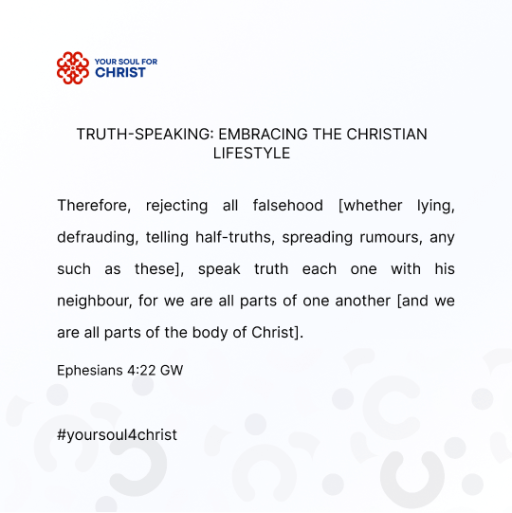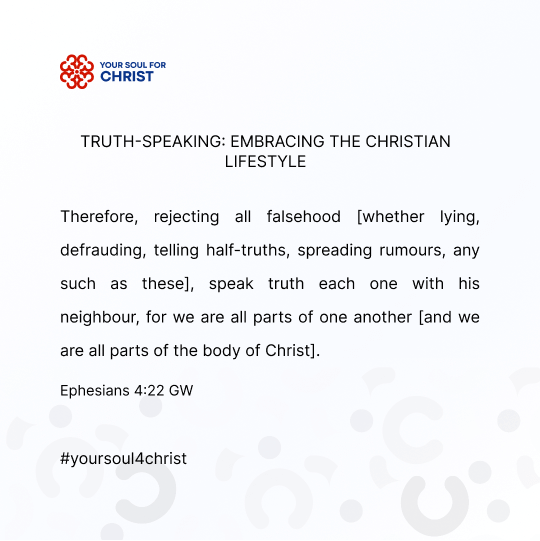Therefore, rejecting all falsehood [whether lying, defrauding, telling half-truths, spreading rumours, any such as these], speak truth each one with his neighbour, for we are all parts of one another [and we are all parts of the body of Christ].
Ephesians 4:25 AMP
In our societies, lying doesn’t only harm others but also comes back to haunt the liar. When we communicate with someone, we are implicitly promising to tell the truth, as truthfulness is expected. A lie breaks that promise and has consequences. Ultimately, truth stands independently and doesn’t rely on lies to exist. Lying can lead to a loss of trust, damaged relationships, and personal accountability. Eroding the fabric of trust that holds society together, upholding truth and honesty becomes essential for everyone’s well-being.
In Ephesians 4:22, we are encouraged to put off the old self, which is being corrupted by its deceitful desires. Meanwhile, this verse tells us to reject the deceit itself. This means getting rid of both the desires and the deceit that corrupts us. By doing so, we free ourselves from the corrupting influence of deceitful thoughts and actions. It’s essential to renounce our old ways and embrace a life of truth and righteousness. This transformation allows us to grow in Christ and live a life that pleases God. By putting off the old self and embracing the truth, we become new creations in Christ, guided by His wisdom and grace.
Falsehood is a detestable character which we must do away with. However, we must understand that falsehood is more than just telling lies. Lying is an abominable habit, it is very detrimental to the human society. Telling lies degrades a man in the estimation of his fellow men. Even a liar avoids being entangled in another man’s lie, such is its disgraceful stain. If God hates and punishes lying so severely, how great will be His hatred of perjury, which is lying confirmed by oath!
Putting away falsehood means adopting a truthful state of mind unique to genuine Christians. True speaking is a result of this grace, springing forth from it. Both are Christian graces and attainments, beyond the reach of the old nature. It involves a character of the inner man, peculiar to true believers, forming a habit or mode of speech that is distinctive to them. In essence, putting away falsehood is not a common virtue; it is an excellence and virtue that the renewed man is capable of, but the old nature cannot attain. It is a transformation of the heart and mind, reflecting the truthfulness of Christ in the life of the believer.
Out of the abundance of the heart the mouth speaks (Luke 6:45). If the heart holds no falsehood, we can expect truth to flow from the lips. Telling half-truths is as detestable as lying itself. Therefore, we must see to it that not even slightest trace of falsehood dwells in our hearts. Thus, we can be sure that our mouth would doubtless be free from the same.

